Bookshelf: Spring 2010
Enough to Go Around: Searching for Hope in Afghanistan, Pakistan & Darfur (SelectBooks) is the inspiring product of photographer and filmmaker Chip (John) Duncan ’77, whose volunteer work with Save the Children in Afghanistan and Relief International in Pakistan and Darfur prompted him to create the book. He founded the Milwaukee-based Duncan Group — a non-fiction documentary company — in 1984, and since then, has captured a great diversity of subjects on film.
With Gold Fish: A John Austin Adventure (iUniverse), you get “adventure, mystery, romance, and murder, all at play over a mentor’s millions” — and all wrapped up in the first novel in a projected series by John McDermott ’69 of Madison.
Brookes Publishing calls A Is for “All Aboard!” “the first alphabet book created with children with autism in mind.” It’s a colorful, uncluttered, engaging book about trains by the sister team of Victoria Kluth ’90 of St. Kilda West, Australia, and Paula Kluth ’92, PhD’98 of Oak Park, Illinois.
Family issues are central to two works by Barbara Taylor Blomquist ’54 of St. Louis, Missouri: her novel Randy’s Ride (Tate Publishing), about a young man’s search to find where he belongs; and Insight into Adoption: Uncovering and Understanding the Heart of Adoption (second edition, Charles C. Thomas Publisher).
You Can’t Not Communicate: Proven Communication Solutions That Power the Fortune 100 (Little Brown Dog Publishing) shares how everything that a leader does conveys a message, so those actions and words must be effective. Author David Grossman ’87 is founder, president, and principal “thoughtpartner” of dg&a, a Chicago-based communications firm.
Comics in Wisconsin (Borderland Books) traces the history of this “important center of comic art experimentation,” as one contributor called it — a “glimpse at the richness of a neglected political and artistic counterculture.” Author Paul Buhle PhD’75 of Madison is a retired senior lecturer at Brown University.
In reading The Nature of Being Human: From Environmentalism to Consciousness, Johns Hopkins University Press promises “sweeping, interdisciplinary, and sometimes combative essays” that will “change the way you think about your place in the environment.” The author, Harold Fromm PhD’62 of Tucson, is a visiting scholar at the University of Arizona and the co-editor of the Ecocriticism Reader.
In The Six Virtues of the Educated Person: Helping Kids to Learn, Schools to Succeed (Rowman & Littlefield), J. (John) Casey Hurley MS’78, PhD’89 offers an alternative schooling model that emphasizes understanding, imagination, strength, courage, humility, and generosity. He teaches educational foundations, leadership, politics, and ethics at Western Carolina University in Cullowhee, North Carolina.
Mad about Trade: Why Main Street America Should Embrace Globalization (Cato Institute) “challenges the populist critics of trade on their own turf,” explaining how expanding trade and foreign investment benefits America and the world. Its author is Daniel Griswold ’79, director of the Center for Trade Policy Studies at the Cato Institute in Washington, D.C.
Bucky Badger leads kids on an action-packed adventure past many beloved Madison landmarks in search of the lost — oh, no! — game-day football in the children’s book The Big Bucky Badger Mystery. Author Chris Newbold ’93 is the president and CEO of its publisher, University Pride Publishing of Missoula, Montana.
The Selma of the North: Civil Rights Insurgency in Milwaukee (Harvard University Press) chronicles the racial-justice movement in Milwaukee during the 1960s — particularly the efforts of African Americans, led by a white Catholic priest named Jerome Groppi, to secure access to housing. Its author is Patrick Jones MA’96, PhD’02, an associate professor of history and ethnic studies at the University of Nebraska-Lincoln.
The Master Cheesemakers of Wisconsin (University of Wisconsin Press) profiles forty-three active masters who share the tradition, technology, and artistry that go into the more than six hundred varieties of cheese produced in the state. The book is a collaboration between Minneapolis foodies James Norton ’99, a columnist for Chow magazine and editor of Heavytable.com; and photojournalist Becca (Rebecca) Dilley ’02.
“The history of sexuality is always a history of politics, the economy, and culture,” writes one reviewer of Infectious Ideas: U.S. Political Responses to the AIDS Crisis (University of North Carolina Press), adding that author Jennifer Brier ’92 “disrupts conventional historical narratives” in exploring the subject. She’s an assistant professor of gender and women’s studies and history at the University of Illinois-Chicago.
Published in the Spring 2010 issue
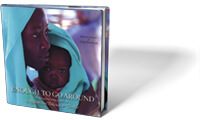

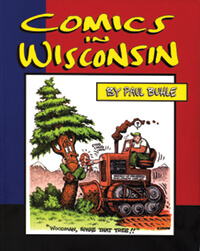
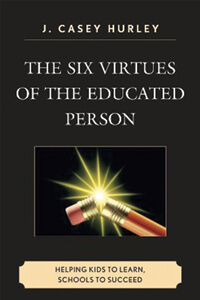
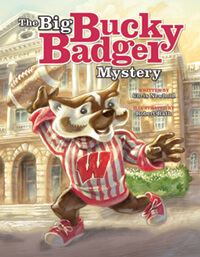
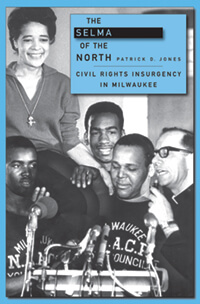



Comments
No comments posted yet.